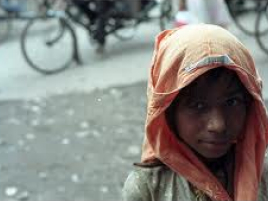India Divided As Caste Census Begins
By Ben Doherty | Sep 03, 2011

For M. P. Kanaujia, there is no escaping caste. It defines him, and has laid out his life’s path.
Kanaujia – the name itself is his subcaste – is of the dhobi or washerperson caste, and that is what he does, day in and day out, from his ramshackle humpy at the end of a row of modest government apartments in the northern Indian city of Chandigarh. ”My caste is who I am,” he says. ”We don’t speak often about it, because everybody knows.”
But it’s relevant for the men who’ve come to visit today. For the first time in 80 years, India is undertaking the herculean task of a caste census.
To most Indian Hindus, caste – a complex hereditary social hierarchy that involves four main orders (varnas) and thousands of subcastes (jatis) – is the foundation of religious and social identity.
But independent India has never asked its citizens with which caste they identify. The last time such a survey was undertaken was in 1931, under the British Raj. British administrators created a list, or schedule, of the lowest castes.
Formally, the caste system has been abandoned under the Indian constitution, but governments recognise that it persists. Since independence, efforts have been made to level the playing field for India’s downtrodden castes, particularly the lowest strata, known then as untouchables, now more commonly called Dalits.
Affirmative action programs reserve university places, government jobs and even seats in Parliament for so-called scheduled or backwards castes. This means that Mr Kanaujia is happy to nominate his. ”I think it’s a good idea, my daughter has just finished her schooling and if this census helps with the quotas for backwards castes, there might be more places for her to complete more education.”
”Old India” has, for millennia, been stratified along caste lines. Caste determined the clothes people wore, the food they ate (and with whom), the jobs they could do and who they could marry. But ”New India” rails against such fatalist labels. Critics argue a caste census will only entrench the social divisions the country needs to dissolve.
Read more: http://www.smh.com.au/world/india-divided-as-caste-census-begins-20110826-1jedu.html#ixzz1Wo24tdvn














